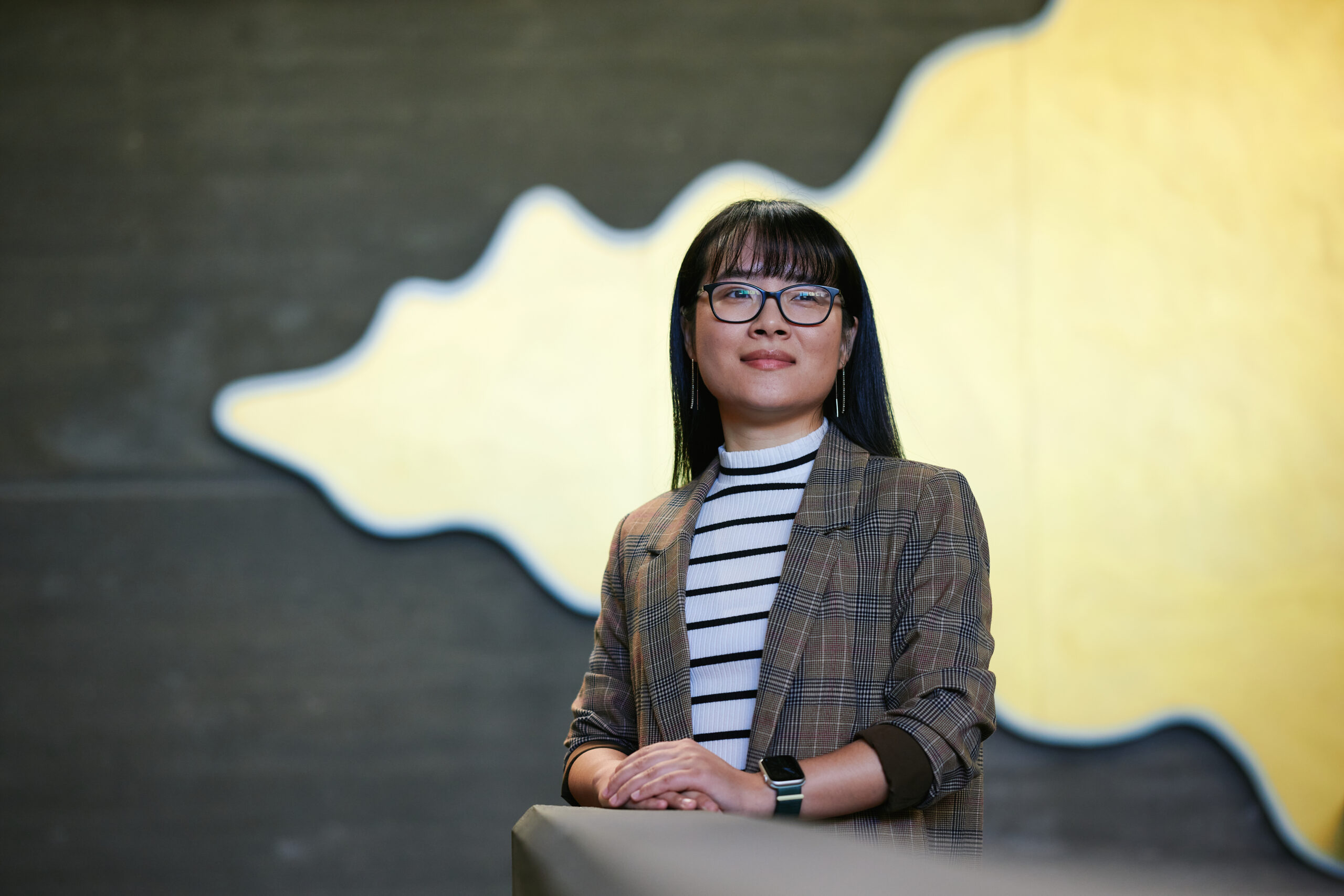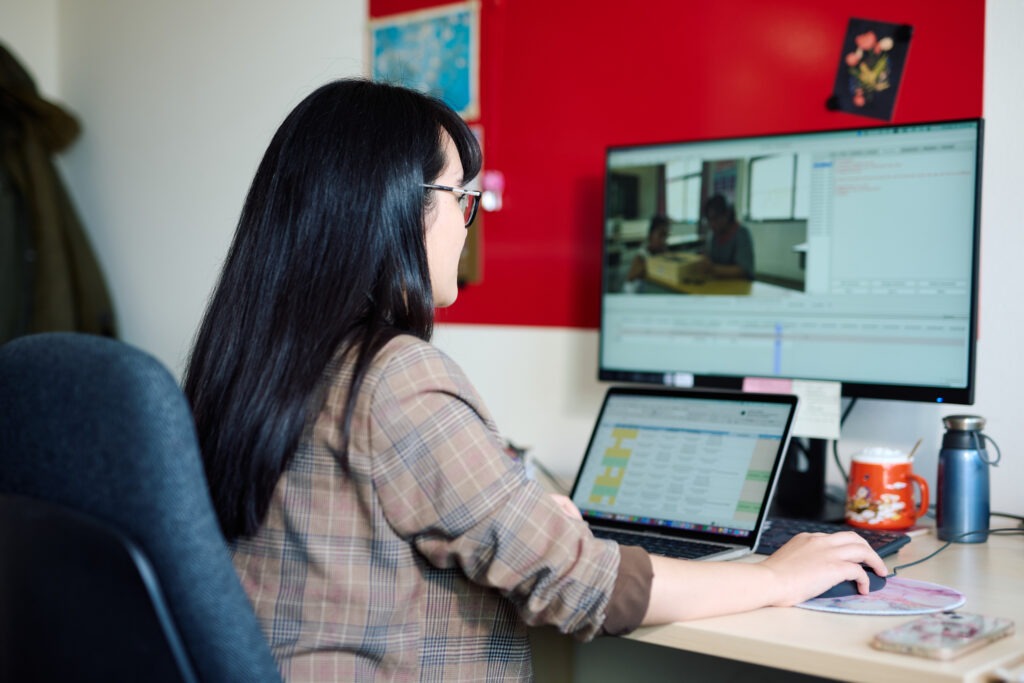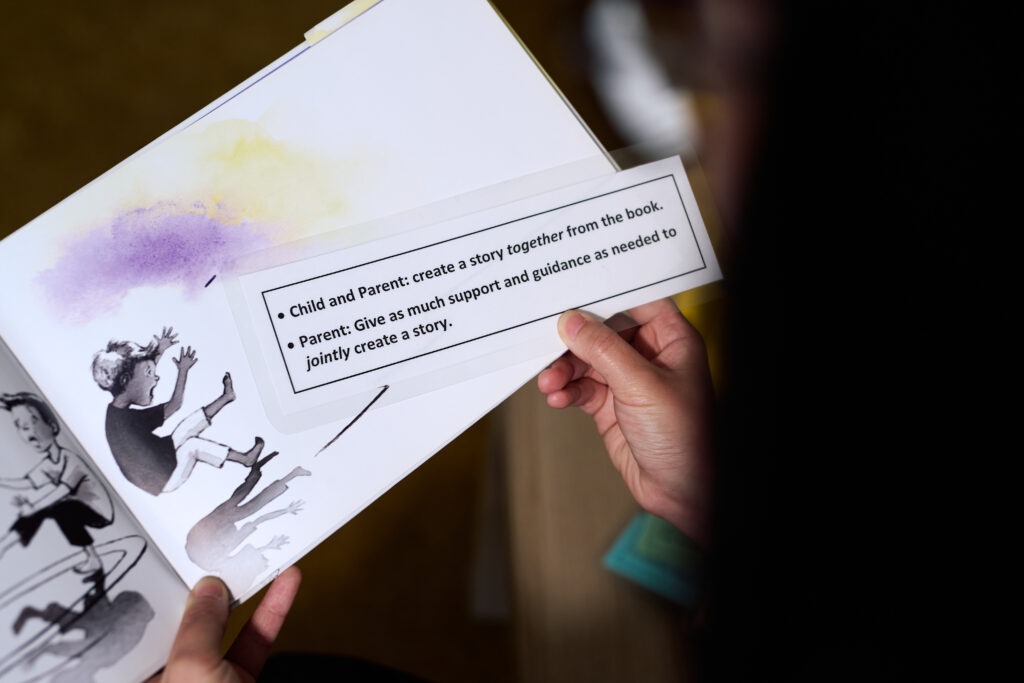
Improving Children’s Wellbeing Through a Deeper Understanding of Culturally Shaped Parenting: An Interview With Dr. Danhua Zhu
Welcome to our first episode of the new WiRe interview series In Her Element, where we sit down with inspiring WiRe Fellows who are currently at the University of Münster to talk about their research, routine, and what it means to be a woman in research today.
In today’s episode, we chat with Dr. Danhua Zhu, a cultural developmental psychologist whose academic journey has taken her from physics in China to cultural parenting research across three continents. Danhua’s current research project at the Chair of Prof. Dr. Joscha Kärtner focuses on parenting practices in China. Learn more about Danhua’s research topic, her path to developemental psychology, and a typical work day of hers in part 1 of our interview.

Dr. Danhua Zhu
Developmental Psychologist

Research Project
The impact of culturally-shaped emotion-related parenting on children’s wellbeing

Danhua’s research helps …
… to design culturally sensitive prevention and intervention programmes to reduce harmful practices, support positive parenting, strengthen familiy bonds, and promote children’s mental health.
What and why: From Physics Curiosity to Cultural Parenting
What is the core question driving your research?
How do parents‘ emotion-related practices impact child development in diverse families, and how are these practices shaped by culture?
If you had to describe your work in just three words, what would they be?
Cultural developmental psychologist.
And the focus of your research, in three words?
Emotion, parenting, culture.
How would you explain your research to a child?
I study how parents help their kids understand and deal with feelings – such as being happy, sad, angry, or proud. I also work with families who may not look like yours to see how different parents teach their kids about feelings in different ways. I’m trying to learn how all these can help kids to grow up confident and healthy.

Can you share what first sparked your interest in this field?
I originally enrolled in college in China majoring in physics. Out of curiosity, I started taking psychology courses as a minor and was soon captivated by their focus on the complex relationships among people, rather than the physical world in physics. I became especially interested in the dynamics between parents and children, and fascinated by how each child follows their own unique developmental path. Eventually, I switched my major to psychology and have been happy with that decision ever since.
Inside the Research Routine: A Day in the Life of a Developmental Psychologist
What does a typical research day look like for you?
I prefer working in my office over working from home. When I arrive, I usually start by checking emails and project updates. If there’s something urgent—like a question from a participant about a study session, or coders having trouble accessing documents—I’ll deal with that first to keep the project running smoothly. Then I spend the rest of the morning transcribing videos of parent-child interactions for my WiRe project, enjoy lunch and social time with labmates, and devote the afternoon to data processing, reading literature, or writing for my WiRe project. Since I also collaborate with teams in the US and Australia, I often attend or run meetings in the evening to accommodate the different time zones.

What qualities are most important for success in your field?
In my opinion, there isn’t a magic formula for success in my field—or, really, in any field. Plus, success could mean different things to different people. Personally, a fulfilling research project happens when everyone on the team is genuinely excited about the work, collaborates openly and honestly, and stays diligent about meeting deadlines or taking initiative.
Which personal strengths help you most in your work? And have you encountered any traits that sometimes get in your way?
Being open-minded to new experiences really helps me—it’s how I grow my knowledge, learn new skills, and build good collaborations. However, I’m not great at multitasking; I tend to focus on one thing at a time, which can sometimes slow things down.
Learning, Leading, and Finding Balance: Inspirations and Realities on the Scientist’s Path
When you were in high school, how did you imagine the life of a scientist? How does it compare to your reality now?
In high school, we had to choose either the science track (Chinese, Math, English, Physics, Chemistry, Biology) or the liberal arts track (Chinese, Math, English, History, Geography, Politics), and I chose science. Back then, I didn’t even think of psychology as a science. I thought being a scientist meant burying yourself in formulas or chemicals, hoping for a single breakthrough and worldwide recognition. The reality is very different—you often work long hours and not always by choice, you research topics far beyond formulas and chemicals, you make many smaller breakthroughs, and recognition mostly comes from within your own scientific community.
Who or what inspires you most in your work?
Growing up in China inspired my interest in emotions and cultural differences in parenting. My PhD mentor, Prof. Dr. Julie Dunsmore, has also been a huge influence—she’s a truly kind and dedicated person who leads with compassion, integrity, and perseverance.
What’s the biggest challenge you face balancing work and personal life—and how do you try to manage it?
Honestly, balancing work and life is still quite challenging for me and I haven’t mastered it yet. I once heard a senior scholar say it’s less about perfect balance, and more about accepting that you can’t focus on everything all at once. Instead, it’s better to be deliberate and prioritize what matters most at a certain point in your academic and personal life, and I find that perspective comforting.
Stay tuned for Part 2, where Danhua reflects on milestones in her field, the global impact of her research, and her favorite discoveries in Münster!
